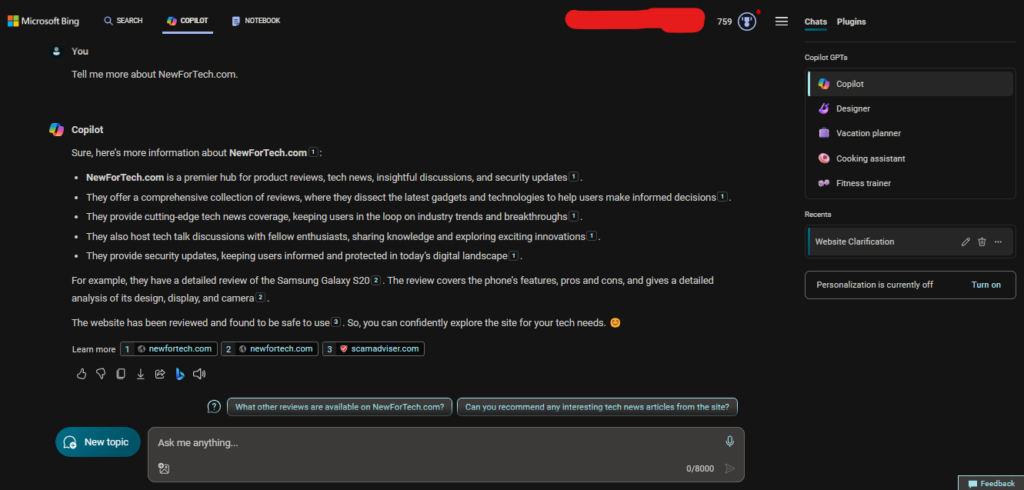Have you tried Bing search recently? You might be surprised to find that a growing number of people around you are using Bing, powered by the AI Copilot, to find answers to both everyday and significant queries.
Bing’s Growth
During a recent earnings call, Microsoft’s CEO, Satya Nadella, revealed that Bing now boasts over 140 million daily active users[MSPowerUser]. If all these users were in the US, it would equate to nearly half the population using Bing for their search needs. This is a significant leap for Bing, which has been rejuvenated since Microsoft integrated a custom version of ChatGPT, initially known as Bing AI, over a year ago.

The Advent of AI Copilot
Microsoft later rebranded Bing AI as AI Copilot and expanded its AI-enhanced search and generative response capabilities across most of Microsoft’s core products, including Windows 11, Edge, Teams, and Office.
The integration is so seamless that distinguishing between Bing and Copilot can be challenging. When you conduct a Bing search, you’ll find a list of results beneath your query and a quick, conversational Copilot on the right, providing additional insights into your search. This makes Bing’s search results seem more comprehensive compared to Google, which has yet to incorporate its new Gemini AI into its search experience.

Bing vs. Google: A Comparison
In terms of information delivery, Google often gets to the point more quickly than Bing. However, the superiority of the results can vary.
For instance, when searching for “the best pool cleaner for a kiddie pool,” both search engines prioritized commercial links for a range of pool cleaners. Bing then provided ‘best of’ lists for pool vacuum reviews, while Google offered practical instructions on using Clorox to clean a kiddie pool.
When asked how to save a dying orchid, Bing highlighted an article from The Spruce with instructions. Copilot offered some empathy and more natural language instructions on the left. Google found the same article but also provided step-by-step rescue instructions below it.
Choosing the better search engine may come down to personal preference. But here lies the issue: if Bing isn’t significantly better than Google, why would people switch? And let’s be clear, most people have not switched.
Search Engine Market Share
The StatCounter Search Engine Global market share chart illustrates this point well. The red line soaring high represents Google. Now, look down until you see the blue line. That’s Bing. While it’s gradually increasing compared to Yahoo and Baidu (and Google is slightly decreasing), Bing’s market share remains in single digits.
With 140 million users, Bing has a substantial user base. However, if Google handles an estimated 8.5 billion queries per day and the average person searches 3-to-4 times a day, Google likely has at least 2.1 billion daily active users. This estimate puts Bing’s progress into perspective.

The Future of Search Engines
Bing is moving in the right direction, but it has a long journey ahead before “SEO” and “Bing” become synonymous. Google’s changes to its search algorithm can alter the fate of entire industries. Bing doesn’t yet wield that kind of influence.
The landscape could shift dramatically if and when Google integrates Gemini into its core search. Some users are already frustrated with having to scroll through what are essentially ads before reaching their core Google search results. How will they react when Gemini places its AI-generated answers before those crucial results? At least Bing hasn’t placed Copilot responses above its core results, at least not yet.
While Bing’s milestone is worth celebrating, there should be no confusion about who still reigns supreme in the world of search engines, and it’s not a name that starts with a B.
